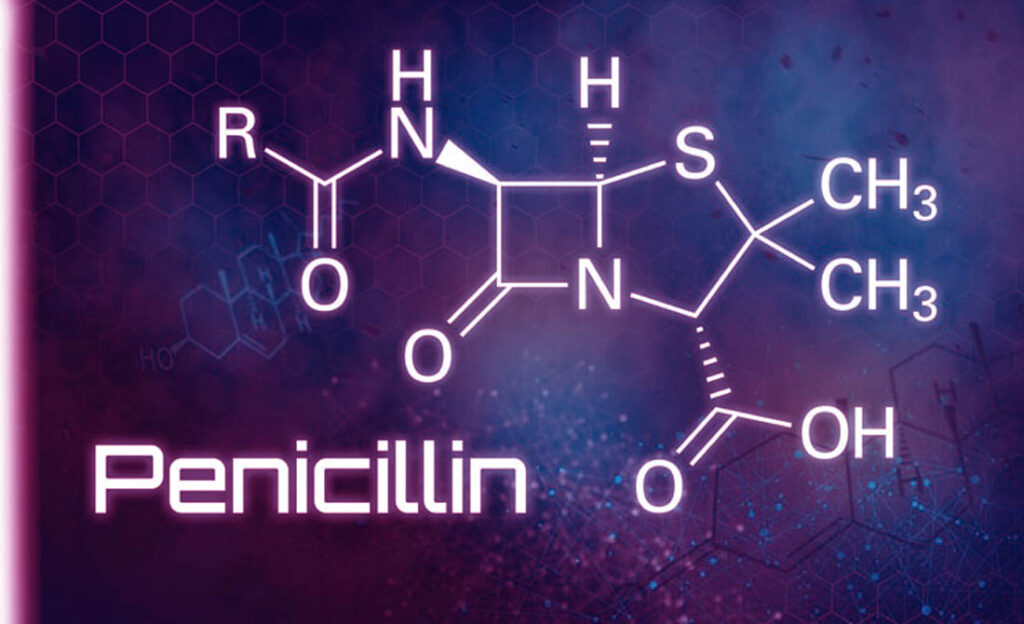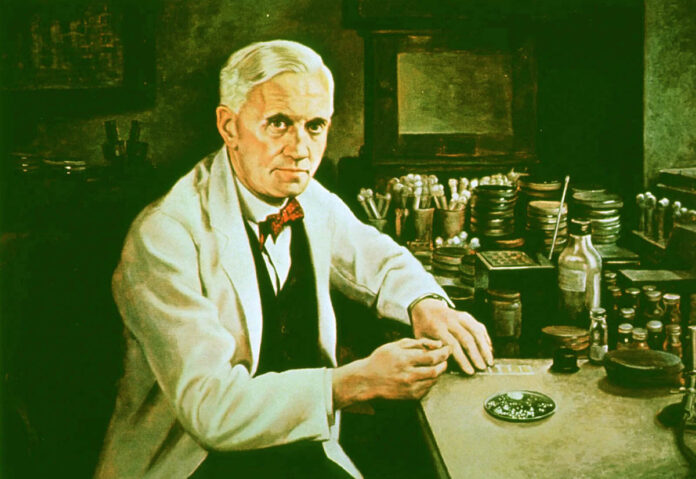In the annals of scientific history, the name Alexander Fleming shines brightly as the man who made a serendipitous discovery that transformed medicine. Born on August 6, 1881, in Lochfield, Scotland, Fleming’s journey from a humble upbringing to the Nobel Prize-winning scientist who revolutionized the treatment of bacterial infections is a story of both perseverance and chance. This biography delves into the life and remarkable achievements of Alexander Fleming, a visionary scientist whose accidental discovery of penicillin opened the door to the antibiotic era and saved countless lives.
Page Contents
Early Life and Education
Alexander Fleming was the seventh of eight children born to Hugh Fleming, a farmer, and Grace Morton, a housewife. His childhood was marked by rural simplicity, but his inquisitive mind set him apart. At the age of 14, he inherited a book on antiseptics from his brother, Tom, who was a physician. This book ignited his interest in the medical field, inspiring him to pursue a career in medicine.
Fleming’s journey to becoming a medical doctor was not without challenges. He had to overcome financial obstacles to attend St. Mary’s Hospital Medical School in London, where he earned his medical degree in 1906. After graduation, he served as a research assistant to Sir Almroth Wright, a pioneer in vaccine therapy.
Read Also : Acharya Jagadish Chandra Bose
World War I and the Battle of the Laboratories
World War I played a pivotal role in shaping Alexander Fleming’s career. In 1914, he volunteered for the war effort and served as a captain in the Army Medical Corps. He was assigned to a laboratory, where he researched and developed methods to combat bacterial infections and control septic wounds. This experience would later prove invaluable in his scientific endeavors.
During the war, Fleming worked alongside other notable scientists, including Sir Almroth Wright and Sir Ernest Rutherford, in what was known as the “Battle of the Laboratories.” This intense collaborative effort aimed to find solutions to the medical challenges posed by the war, particularly the treatment of infected wounds.
The Accidental Discovery of Penicillin
Fleming’s most enduring contribution to science occurred in September 1928, when he made a discovery that would change the course of medicine. He had returned to St. Mary’s Hospital after a vacation and was sorting through petri dishes containing bacterial cultures. On one of the dishes, he noticed something unexpected: a clear area surrounding a patch of mold that seemed to inhibit the growth of bacteria. Intrigued by this phenomenon, he identified the mold as a strain of Penicillium and realized that it was secreting a substance with antibacterial properties.
Fleming meticulously documented his discovery, which he named “penicillin.” He recognized the immense potential of this substance to combat bacterial infections and immediately began conducting experiments to study its properties. His research demonstrated that penicillin was effective against a wide range of bacteria, including dangerous pathogens like Staphylococcus aureus.

Challenges in Developing Penicillin
Although Fleming had discovered penicillin’s potential, its development into a practical antibiotic treatment faced considerable challenges. Producing penicillin in sufficient quantities and ensuring its stability for medical use proved to be complex problems.
It was not until the 1940s that a team of scientists, including Howard Florey, Norman Heatley, and Ernst Boris Chain, successfully mass-produced penicillin through fermentation processes. This breakthrough paved the way for the widespread use of penicillin as a life-saving antibiotic during World War II.
The Nobel Prize and Legacy
In 1945, Alexander Fleming, along with Howard Florey and Ernst Boris Chain, was awarded the Nobel Prize in Physiology or Medicine for his discovery of penicillin. The Nobel Committee recognized the profound impact of penicillin on medicine and its role in revolutionizing the treatment of bacterial infections.
Fleming’s discovery ushered in the antibiotic era, transforming the medical landscape by providing a powerful tool to combat infectious diseases. Penicillin saved countless lives, and its success spurred further research into antibiotics, leading to the development of a wide range of antimicrobial drugs.
Later Career and Personal Life
After receiving the Nobel Prize, Alexander Fleming continued his work in microbiology and pharmacology. He focused on studying antibiotics and their effects on microorganisms, contributing to our understanding of antimicrobial resistance.
Fleming remained dedicated to his work throughout his life, but he was also known for his humility and kindness. He often offered guidance and encouragement to younger scientists, nurturing the next generation of researchers.
Read Also : Ernest Rutherford: Pioneering the Atomic Frontier
Conclusion
Alexander Fleming’s life and work exemplify the profound impact that a chance discovery can have on the course of human history. His accidental observation of penicillin’s antibacterial properties transformed medicine and saved countless lives. Fleming’s legacy endures as a testament to the power of scientific curiosity and perseverance.
Beyond his scientific contributions, Fleming’s humility and willingness to collaborate left an indelible mark on the scientific community. His discovery of penicillin not only revolutionized medicine but also laid the foundation for the development of antibiotics that continue to be vital in the fight against infectious diseases.
Alexander Fleming’s life story serves as an enduring inspiration, reminding us that groundbreaking discoveries can arise from the most unexpected places and that the pursuit of knowledge is a noble endeavor that can change the world for the better.


